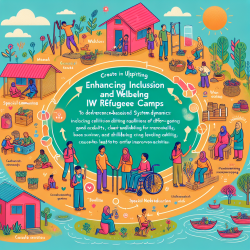Understanding Repetition Reduction in Toddlers
In the realm of speech development, the phenomenon of "repetition reduction" has long been observed in adults, where repeated words are spoken more quickly than novel words. But what about toddlers? Recent research, titled It’s Mine, . . . It’s Mine: Unsolicited Repetitions Are Reduced in Toddlers, sheds light on how this phenomenon manifests in young children, providing insights that can be invaluable for speech therapists and educators.
The Study's Key Findings
Conducted with twelve monolingual English-speaking toddlers, the study observed that even at the tender age of two, children exhibit a form of repetition reduction. This means that when toddlers spontaneously repeat their own utterances, they do so at a faster articulation rate than their original speech. This finding suggests that even young children possess a degree of speech motor flexibility that supports changes in articulation rate.
Implications for Practitioners
For speech therapists and educators, these findings offer several practical implications:
- Encourage Repetition: Given that toddlers naturally engage in repetition, encouraging this behavior can support their speech development. Activities that promote repetition can be integrated into therapy sessions to enhance articulation skills.
- Monitor Speech Patterns: Observing changes in a child's speech rate during repetitions can provide insights into their speech motor development. This can help tailor interventions to meet individual needs.
- Focus on Naturalistic Settings: Since the study highlights the presence of repetition reduction in natural play settings, creating a playful and engaging environment can be beneficial for speech therapy.
Encouraging Further Research
While the study provides groundbreaking insights, it also opens the door for further research. Practitioners are encouraged to explore:
- The impact of structured repetition exercises on speech development in toddlers.
- Differences in repetition reduction between spontaneous and prompted speech.
- The role of auditory feedback in facilitating repetition reduction in young children.
Conclusion
The discovery of repetition reduction in toddlers not only enhances our understanding of early speech development but also provides practical strategies for improving speech therapy outcomes. By embracing these findings, practitioners can better support the speech and language development of young children.
To read the original research paper, please follow this link: It’s Mine, . . . It’s Mine: Unsolicited Repetitions Are Reduced in Toddlers.










